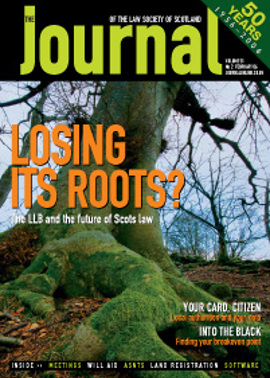Website reviews

The first task I set myself in compiling this review was to find out the difference between mediation and conciliation. The answer seems to be “not much”. According to the ADRnow website (www.adrnow.org.uk) there is still some confusion over this issue. However, a conciliator might take a more active role than a mediator, making suggestions or advising on the best way to resolve a dispute, for example.
ACAS
The Advisory, Conciliation and Arbitration Service is probably the best known organisation covered in this review. It operates exclusively in the field of employment.
At first glance, there does not seem to be a great emphasis on conciliation (or indeed arbitration) on the site, as compared with the wealth of material on employment law and practice. In fact, there is some very good quality material, including an explanation of the conciliation process and its benefits. I am a sucker for bells and whistles, so I was very impressed with the conciliation video available to view on the site, usefully offered in a variety of file formats and sizes.
The (somewhat lengthy) text is easy to understand and explains the role of conciliation in the context of employment tribunal cases well, with some useful links at the side of the relevant pages.
It would be remiss not to mention the massive amount of other information and the clever way it is arranged. One of the problems with a large number of webpages on a site can be finding the one you’re looking for. The ACAS solution is to include an “A-Z of work”. This provides exactly that. Boss won’t let you take your holidays? Click on “H”.
A nice, easy-to-use feature which adds real value to this excellent site.
Disability Conciliation Service
The Disability Conciliation Service, another statutory body, helps to resolve cases under the Disability Discrimination Act which relate to goods and services, or education. The site stresses the somewhat hard-nosed approach the Service takes, describing it as both “assertive” and “rights-based”.
As you would expect, the website achieves very high standards in accessibility, and is very easy to use. There are two principal navigation methods: links across the top (typically single word links) and longer, cascading links down the left-hand side. This took some getting used to (but not too much).
There is a brief synopsis of the law, but nothing like on the scale of ACAS. For further detail, visitors are referred to the sister Disability Rights Commission (www.drc-gb.org).
Again, there is an explanation of how the system works and much is made of the benefits of disability conciliation. One thing which really set the site apart was the availability of case summaries. For each subcategory (e.g. cases involving hotels, or people with a visual impairment) there is a list of anonymised cases detailing the subject matter and background and the agreed outcome. This is tremendously useful as it provides real examples of the types of cases which have been resolved successfully by conciliation.
I also enjoyed the colourful sitemap.
Construction Conciliation Group
The CCG, as the name implies, deals with disputes between property owners and constructors. What it offers seems to be a subtle blend of conciliation and arbitration (of which more next month).
In common with the other sites, there is an explanation of the process. I might suggest that there is a little too much of this, much of it contained in Word documents for download. I suppose that if I were actually in a construction dispute I would welcome the attention to detail, but I found myself a little bogged down in it. One feature the others did not have was a section on the conciliators themselves, complete with pen portrait and CV. Beyond that, there is not a huge amount to say about this site. I liked it.
Qualitas
Qualitas Furnishing Standards is a representative body that aims to improve standards and service in the furniture industry. I have worked in law centres for long enough to know that if there’s one thing almost guaranteed to create a seemingly intractable dispute, it’s shelling out the best part of three months’ wages on a leather suite, only to find that it scuffs the first time you sit on it.
In common with the CCG site, arbitration (here called adjudication) is offered in cases where the parties cannot reach a consensus following conciliation. The scheme only applies to member retailers, but the list is impressively lengthy. The same cannot be said for the conciliation section of this site, really just one page. However, the page is used effectively since I was left with a clear idea of how the system worked and how to refer a case. So, not bad, all in all.
In this issue
- Legal aid in children's hearing referrals
- Still waters run deep
- Catch-up or patch-up?
- Legal science or law-lite?
- Heads above water
- Your name on file
- A welcome addition
- Another ***** meeting?
- A neglected asset
- Planning a year of action
- The Pagan mission
- A good case to read
- Jurisdiction: dispelling the myth
- That special something
- The art of cashing in
- Scottish Solicitors' Discipline Tribunal
- Website reviews
- Book reviews
- In on the Act
- Keeper's corner






